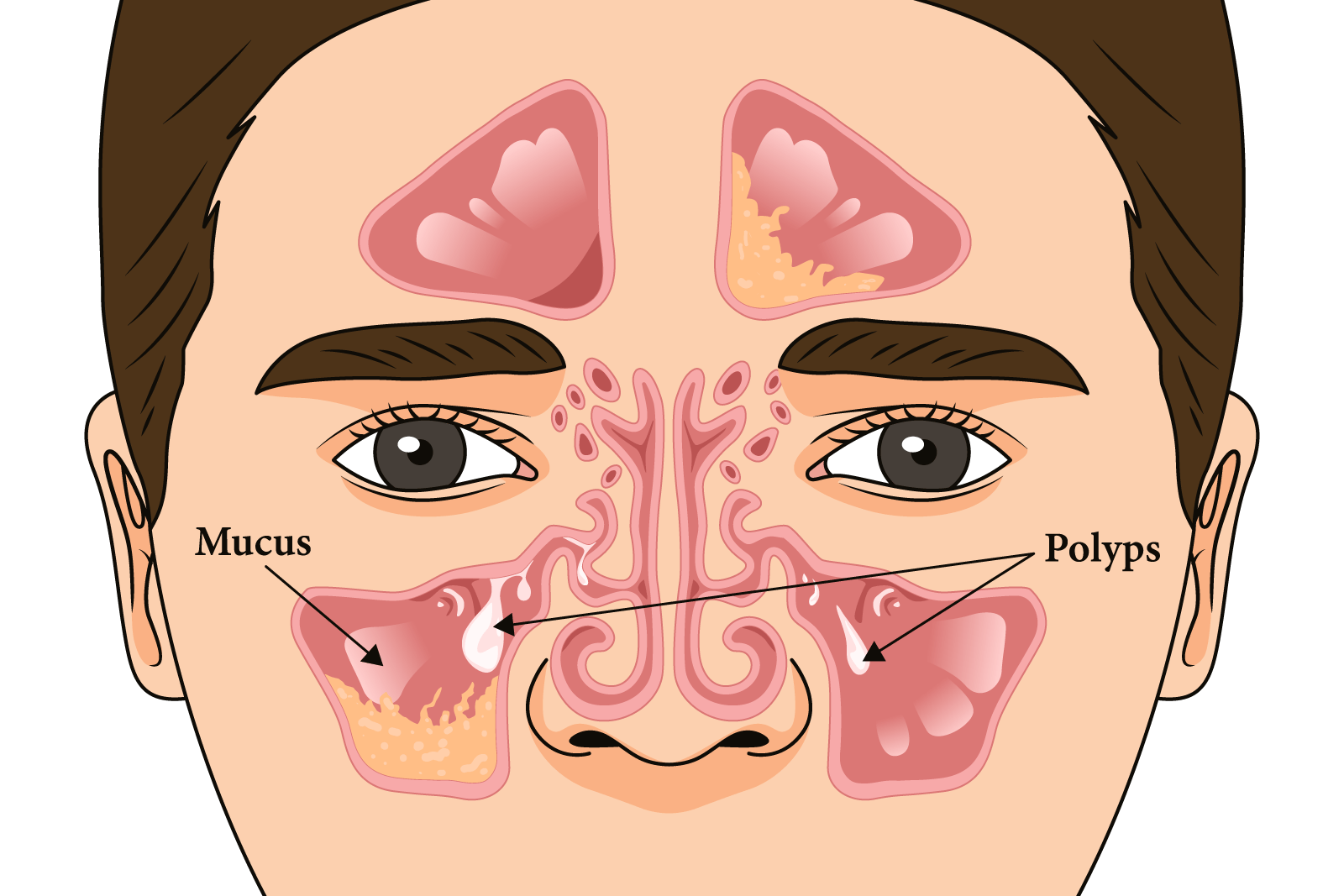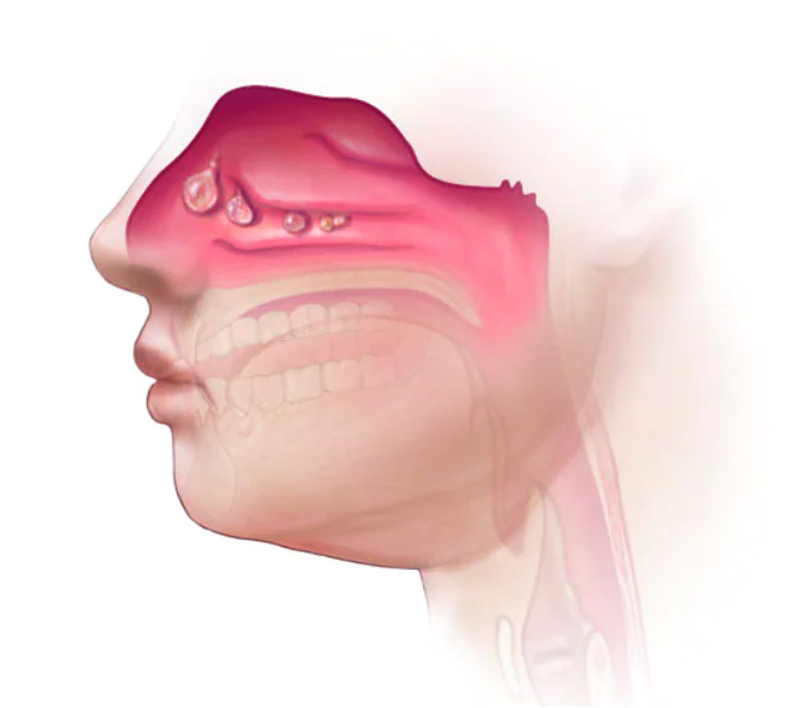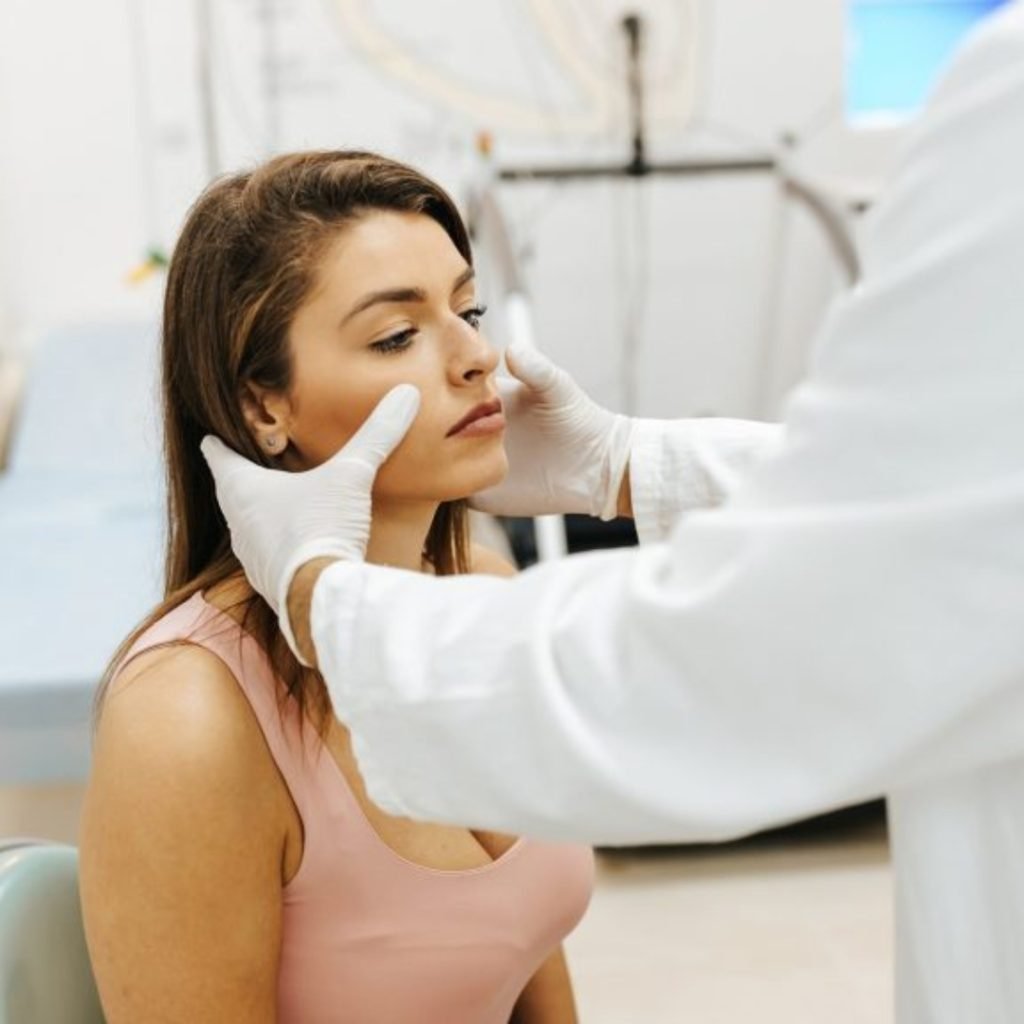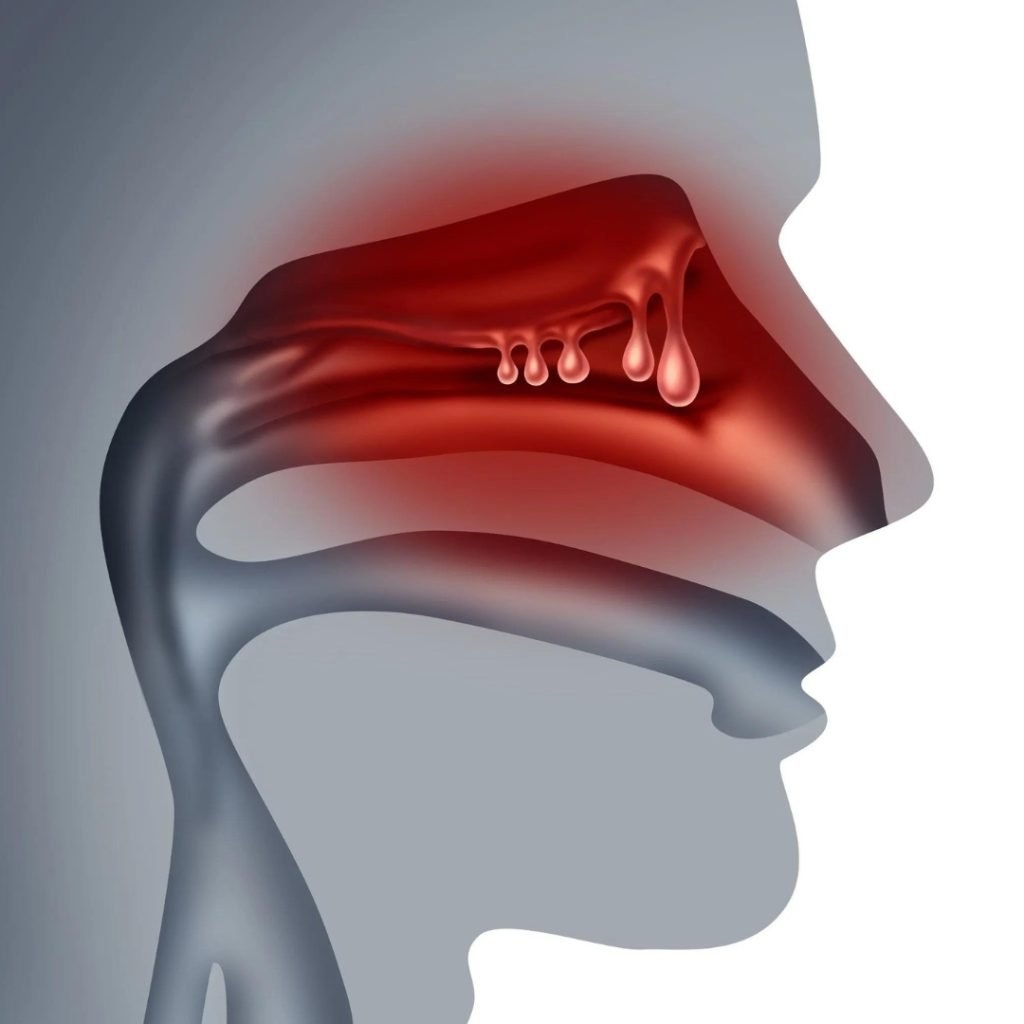All Departments
- Adenoidectomy
- Ear Infection
- Eardrum Surgery
- FESS ( Functional-Endoscopic-Sinus-Surgery)
- Mastoidectomy Surgery
- Myringotomy
- Nasal Polyps Surgery
- Septoplasty
- Sinus Surgery
- Stapedectomy
- Throat Surgery
- Thyroidectomy
- Tonsillectomy
- Tonsillectomy
- Turbinate Reduction
- Tympanoplasty
- Vocal Cord Surgery
Emergency Cases
917838450942
Nasal Polyps Surgery
Doxtreat – Best ENT clinics for nasal polyp treatment in India
One of India’s top and biggest suppliers of surgical care is Doxtreat. It collaborates with some of the top ENT facilities in India to offer cutting-edge ear, nose, and throat care to all patients at reasonable costs. Furthermore, Doxtreat offers a group of highly skilled ENT doctors who offer cutting edge care for a range of issues such nasal polyps, turbinate hypertrophy, etc. without any complications or breathing issues for the patient.
Doxtreat also offers the patient additional support services like full insurance and hospital documentation assistance, simple payment methods like cost-free EMI, etc. Additionally, it offers the patient cab service for pick-up and drop-off from the clinic on the day of operation as well as free meals while they are in the hospital.

How are nasal polyps treated?
The treatment of nasal polyps depends on the severity of the symptoms and the size and number of the polyps. In mild cases, over-the-counter medications such as antihistamines and decongestants may help to reduce symptoms such as congestion and runny nose. However, for more severe cases, prescription medications such as corticosteroids may be necessary. These medications can be administered as a nasal spray, pill, or injection and work by reducing inflammation and shrinking the polyps.
If medication does not provide relief, or if the polyps are very large, surgery may be necessary. The most common type of surgery for nasal polyps is endoscopic sinus surgery. This procedure involves using a small, flexible tube with a camera attached to it to examine the sinuses and remove the polyps. In some cases, the surgeon may also need to remove small pieces of bone to improve the drainage of the sinuses.
In addition to medication and surgery, some lifestyle changes may help to reduce the risk of developing nasal polyps or prevent them from returning. This includes managing underlying conditions such as allergies and asthma, avoiding exposure to irritants such as tobacco smoke and pollution, and practicing good nasal hygiene such as using saline nasal spray or a neti pot to flush out the sinuses

How to prepare for nasal polyp surgery?
If you are scheduled for nasal polyp surgery, it is important to prepare yourself both physically and mentally to ensure a successful procedure and recovery. Here are some tips to help you prepare for nasal polyp surgery:
Follow your doctor’s instructions: Your doctor will provide you with specific instructions on how to prepare for surgery, including any medications to stop taking beforehand and what to eat or drink before the procedure. Follow these instructions carefully to avoid any complications.
Arrange for transportation: You will not be able to drive yourself home after the surgery, so arrange for someone to drive you or take a taxi or ride-sharing service.
Prepare for recovery: Nasal polyp surgery may require a few days of recovery time, so plan accordingly. Stock up on any necessary supplies such as gauze, pain relievers, and saline nasal spray.
Avoid smoking and alcohol: Smoking and alcohol can increase the risk of complications during and after surgery, so avoid these substances for at least a few days before and after the procedure.
Talk to your doctor about any concerns: If you have any questions or concerns about the surgery, talk to your doctor beforehand. They can help ease your concerns and provide you with more information about the procedure

When is nasal polyp treatment required?
Nasal polyp treatment is typically required when the growths cause significant symptoms or complications. The symptoms of nasal polyps can vary, but they often include a blocked or stuffy nose, decreased sense of smell or taste, facial pressure, snoring, and postnasal drip. If these symptoms are mild or do not interfere with daily activities, treatment may not be necessary.
However, if the polyps are large or causing significant symptoms, treatment may be necessary to alleviate discomfort and improve breathing. Additionally, if nasal polyps are left untreated, they can lead to complications such as chronic sinus infections, asthma exacerbations, and sleep apnea.
Treatment for nasal polyps can include medications such as nasal corticosteroids, antihistamines, and decongestants, which can help to reduce inflammation and shrink the polyps. In more severe cases, surgery may be necessary to remove the polyps and improve nasal breathing. Lifestyle changes such as avoiding allergens and irritants, practicing good nasal hygiene, and managing underlying conditions such as asthma can also help to prevent the development of nasal polyps.
Overall, the decision to treat nasal polyps depends on the severity of symptoms and the impact they have on daily life. If you are experiencing symptoms of nasal polyps, it is important to talk to your doctor to determine the best course of treatment.

What should I expect after nasal polyp surgery?
After nasal polyp surgery, it is common to experience some discomfort and changes in your breathing. Here are some things to expect during the recovery period:
- Congestion and drainage: You may experience congestion and drainage from your nose for several days after surgery. This is normal and can be managed with saline nasal spray and other medications as prescribed by your doctor.
- Pain and discomfort: It is normal to experience some pain and discomfort after nasal polyp surgery. Your doctor may prescribe pain medication to help manage any discomfort.
- Changes in smell and taste: It is common to experience changes in your sense of smell and taste after nasal polyp surgery. This is usually temporary and should improve over time.
- Activity restrictions: You may need to avoid certain activities for a period of time after surgery, such as blowing your nose or strenuous exercise. Your doctor will provide you with specific instructions on what to avoid and for how long.
- Follow-up appointments: You will likely have a follow-up appointment with your doctor to monitor your recovery and ensure that the surgery was successful.
- Recurrence of polyps: Nasal polyps can sometimes recur after surgery. Your doctor may recommend medication or other treatments to help prevent this from happening.
It is important to follow your doctor’s instructions carefully during the recovery period to ensure a successful outcome. If you experience any severe or concerning symptoms, such as bleeding, fever, or severe pain, be sure to contact your doctor right away.
How to prevent formation and recurrence of nasal polyps?
The exact cause of nasal polyps is not fully understood, but there are several steps you can take to help prevent their formation or recurrence:
- Manage underlying conditions: Conditions such as allergies, asthma, and chronic sinusitis can increase the risk of nasal polyps. Managing these conditions with proper treatment and medication can help to prevent the formation of nasal polyps.
- Practice good nasal hygiene: Keeping your nasal passages clean and moist can help to prevent the formation of nasal polyps. This can be done with saline nasal spray, nasal irrigation, or other treatments recommended by your doctor.
- Avoid irritants: Avoiding irritants such as cigarette smoke, pollution, and chemical fumes can help to prevent the formation of nasal polyps.
- Use nasal corticosteroids: Nasal corticosteroids are a type of medication that can help to reduce inflammation in the nasal passages and prevent the formation of nasal polyps. These medications are available by prescription from your doctor.
- Treat infections promptly: Promptly treating infections such as sinusitis can help to prevent the formation of nasal polyps.
- Consider allergy testing and immunotherapy: If you have allergies, getting tested and treated with immunotherapy can help to reduce the risk of nasal polyps.
- Attend regular check-ups: Attending regular check-ups with your doctor can help to monitor for the formation or recurrence of nasal polyps and allow for prompt treatment if necessary.

